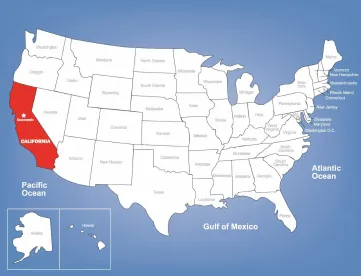On May 9, 2023, the California Supreme Court heard oral arguments in Adolph v. Uber to decide “[w]hether an aggrieved employee who has been compelled to arbitrate [their individual] claims under the [California Labor Code] Private Attorneys General Act (PAGA) . . . maintains statutory standing to pursue PAGA claims arising out of events involving other employees . . . in court or in any other forum the parties agree is suitable.”
The Court’s answer to the question is of critical importance to employers who utilize (or are considering utilizing) arbitration agreements. Last year, the U.S. Supreme Court held in Viking River Cruises v. Moriana that an employee who has been compelled to arbitrate their individual PAGA claim(s) lacks standing to pursue PAGA claims involving other employees in court. The decision made employment arbitration agreements increasingly attractive to employers because it potentially allowed arbitration agreements to dispose of most, if not all, of a PAGA action. But the U.S. Supreme Court’s decision also left open the possibility that the California Supreme Court might disagree with its conclusion and, because the issue is a matter of pure state law, the California Supreme Court’s decision would control at the end of the day.
The Oral Arguments
Unsurprisingly, the parties spent time during oral arguments discussing the import of a prior California Supreme Court decision, Kim v. Reins International California, Inc. In Kim, the California Supreme Court held that an employee who settles their individual (non-PAGA) Labor Code claims still maintains standing to pursue a PAGA action in court. In reaching its conclusion, the Court explained that “[a] PAGA claim is legally and conceptually different from an employee’s own suit for damages and statutory penalties [because] [a]n employee suing under PAGA does so as the proxy or agent of the state’s labor law enforcement agencies and may recover civil penalties that are distinct from the relief available to employees suing for their own individual Labor Code violations. The Court also explained that to have standing under PAGA an individual must be an “aggrieved employee” – defined by PAGA as “any person who was employed by the alleged [Labor Code] violator and against whom one or more of the alleged violations was committed,” and an individual does not necessarily lose status as an “aggrieved employee” by virtue of settling their individual (non-PAGA) Labor Code claims.
Both parties argued Kim supported their respective positions. For his part, Adolph argued that Kim supports his bid for standing despite his individual PAGA claims being compelled to arbitration because, in his view, unless and until there is an adjudication of his status as an “aggrieved employee,” nothing under PAGA precludes his pursuing PAGA penalties for other employees in a separate court action. Meanwhile, Uber argued that Kim supports its argument that Adolph lacks standing to pursue PAGA claims on behalf of other employees in court while he is arbitrating his individual PAGA claims. Uber argued that, unlike the employee in Kim, Adolph has no “skin in the game” when it comes to the separate court action for PAGA penalties for other employees and therefore lacks standing to prosecute that case. Although there was disagreement on the application of Kim (among other things), both sides did appear to agree that if the California Supreme Court concluded that an employee compelled to individual arbitration maintains standing to pursue PAGA claims involving other employees in court, it would still be appropriate to require trial courts to stay the action pending completion of the individual arbitration.
What’s Next
The California Supreme Court files its written opinions within 90 days of oral arguments and the decision becomes final 30 days after filing. As such, the resolution of the questions posed in Adolph should be out by August 7, 2023.





 />i
/>i
